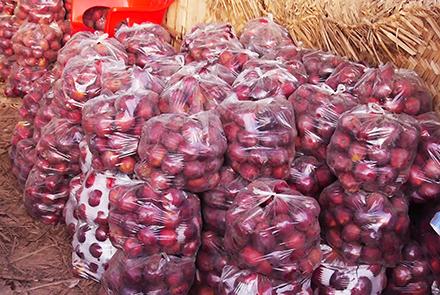Officials from Afghanistan Chamber of Commerce and Industries (ACCI) on Monday said Islamabad has once again closed its borders to Afghan apple traders.
According to ACCI, Pakistan claims the reason for the ban is that these are in fact Iranian apples and not Afghan apples.
ACCI deputy head Khan Jan Alokozay said Pakistan’s decision to close the borders to Afghan apple traders comes during the apple harvesting season.
Pakistan has on numerous occasions in the past closed its borders to Afghan produce, citing quality control certification as the problem.
This time however, “they have claimed that Iranian apples are being exported under the name of Afghanistan, while Afghanistan apples are different from Iranian apples. Our apples are red and yellow, but Iran’s apples are green. Also Iranian apples will only be harvested in two months’ time; but in Afghanistan right now it is harvest season,” said Alokozay.
The Fresh Fruits Exporters Union officials said if Pakistan routes are not re-opened for Afghan apple trade, farmers in Maidan Wardak, Ghazni and Baghlan provinces will suffer heavy losses.
The head of the union, Akhtar Mohammad, said government should resolve the problem with Pakistan, otherwise, thousands of tons of apples will rot.
“We want the government to speak with Pakistan and find out why they have stopped the exportation of apples. Then, government should resolve the problem quickly, because apples are an important product in many provinces and farmers will suffer if the routes remain closed,” said Akhtar Mohammad.
The Ministry of Industries and Commerce refused to comment in this regard.
ACCI statistics show that apples are one of the key export items for Afghanistan and annually on average 100,000 tons are exported to Pakistan.
Meanwhile, a number of economic affairs analysts said the Afghan government has failed to resolve such transit and trade problems with Pakistan – over the past 17 years.

